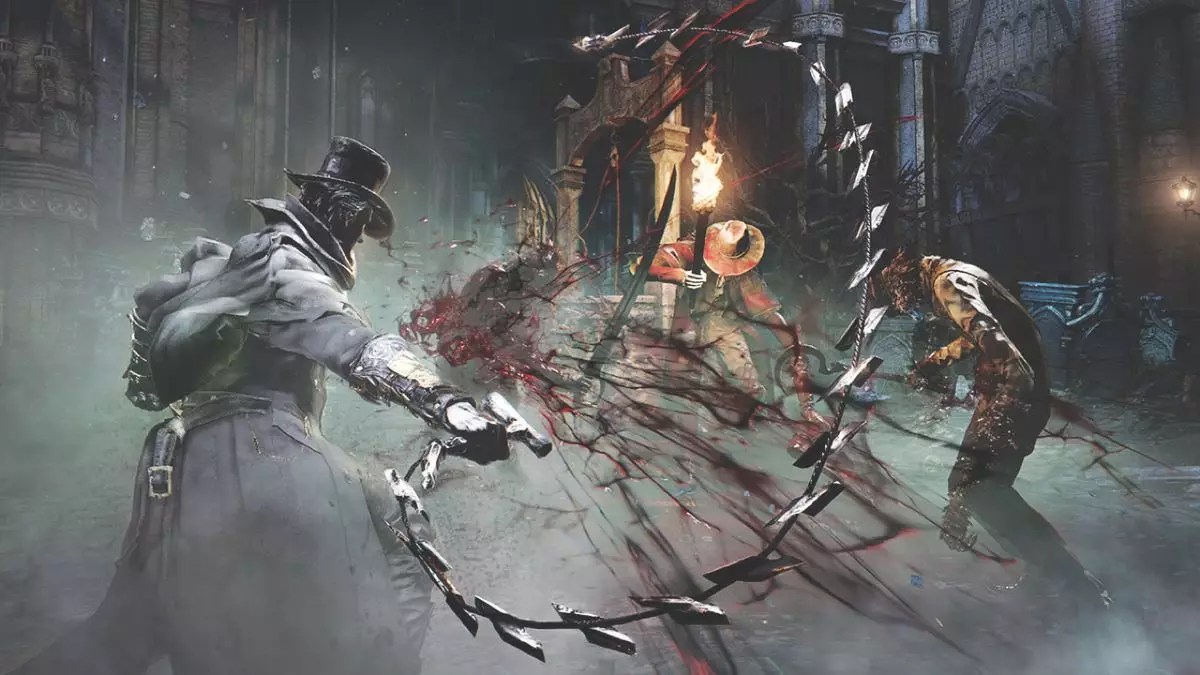As the gaming community continuously clamors for updates on beloved titles, few resonate as profoundly as FromSoftware’s ‘Bloodborne.’ Since its release almost a decade ago, ‘Bloodborne’ has enchanted players with its intricate world and challenging gameplay. Yet, the elusive prospect of a remaster or sequel has left many fans in a state of discontentment. As discussions flare, particularly in the wake of PlayStation’s recent State of Play announcements, it has become increasingly clear that the pangs of disappointment stem not only from silence but from the jarring realization of a metastasizing rift between fans’ desires and corporate realities.
Recent dialogues surrounding PlayStation’s omissions from their showcase have only amplified this sentiment. The absence of any mention of ‘Bloodborne’—despite its monumental influence on the action RPG genre—has caused ripples through platforms like Reddit and Twitter. Enthusiasts question the prioritization of titles such as “Days Gone” and express their disbelief that a remaster of a less successful game has emerged before a beloved classic. What does this say about industry dynamics and the treatment of timeless titles?
The fervor surrounding ‘Bloodborne’ is partly anchored in nostalgia. Players recall late-night gaming sessions where triumph and defeat intermixed in a uniquely challenging atmosphere. The game cultivated a dedicated fanbase steeped in the lore, mechanics, and iconic boss battles that were painstakingly crafted within its haunting landscapes. As time marched on, however, players began to cling to hope for a remastered version that could breathe new life into their cherished experience.
Yet, the reality remains stark. PlayStation has largely shifted its focus away from ‘Bloodborne.’ The year 2024 came and went with no remaster announced, highlighting the disappointing trend of neglecting classic games in favor of promoting newer, often less critically acclaimed titles. Players can find themselves caught in a tug-of-war of emotions, oscillating between hope for the return of their favorite experiences and the recognition of the industry’s inconsistent prioritization.
The practice of radical acceptance may hold key insights for devoted fans. Acknowledging the situation may assuage some of the sting that accompanies fandom in the face of business decisions. While social media posts and countless threads rally for attention towards ‘Bloodborne,’ it is essential to recognize that such grassroots fervor may not yield the anticipated results. PlayStation’s history of being stingy with its intellectual properties serves as a reminder—all the wishes and dreams are ultimately confined to the realm of wishful thinking.
The concern is not merely the absence of a remastered version but what that signifies: the need for adaptability and movement toward embracing the old in new forms, rather than fixating on what could have been. For many, returning to play the original ‘Bloodborne,’ albeit at 30fps, can become a statement of love rather than unattainable longing. This return allows for a solidification of connection amidst the uncertainty of future remasters and sequels.
Instead of allowing anticipatory excitement to morph into bitterness when aspirations remain unfulfilled, embracing the beauty of ‘Bloodborne’ as it is can offer a hearty consolation. Not only does this foster an appreciation for the hard work and artistry that went into the game, but it also allows players to live in the moment rather than getting lost in what may never come.
In a multimedia landscape cluttered with fast-paced releases and continuous updates, a moment of reflection on the impact of a timeless title such as ‘Bloodborne’ can cultivate a renewed sense of ownership over the experiences that originally sparked joy. With its haunting gothic architecture, curiously woven narratives, and impactful mechanics, ‘Bloodborne’ continues to echo throughout the gaming landscape, begging us to put aside the burdens of commercialism and dive into the abyss once more—one chilling encounter at a time.
Rather than waiting for an elusive remaster that may never materialize, perhaps the real call to action is to embrace the magic of the original work, to celebrate its legacy, and to appreciate the experiences it has given us along the way.


Leave a Reply